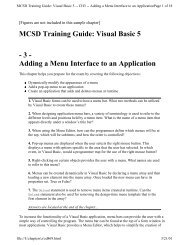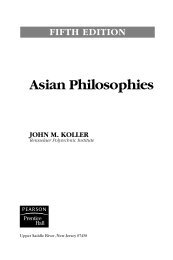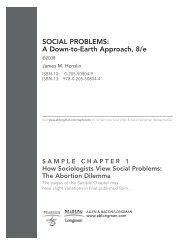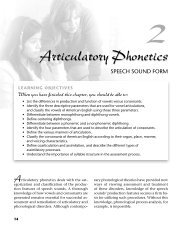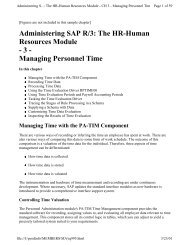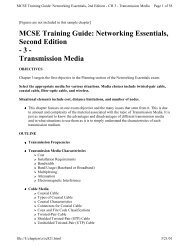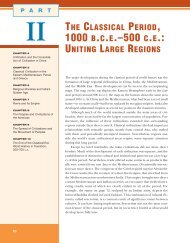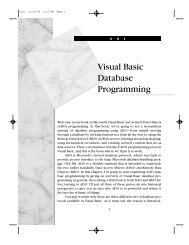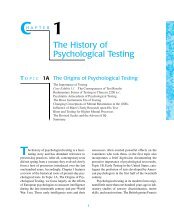CULTURE, language, AND COGNITION
CULTURE, language, AND COGNITION
CULTURE, language, AND COGNITION
Create successful ePaper yourself
Turn your PDF publications into a flip-book with our unique Google optimized e-Paper software.
GA305c05.qxd 4/30/2004 11:26 AM Page 117<br />
adolescence and early adulthood 117<br />
mal operational performance was found to be equal to or better than the<br />
performance of American or European children (Goodnow & Bethon, 1966).<br />
Some formal operational thinking was also found among schoolchildren in<br />
Central Java and New South Wales (Philip & Kelly, 1974). Based on these<br />
and similar findings, Piaget (1972) proposed that development of formal operational<br />
thinking is influenced by experience as well as by culture (Rogoff &<br />
Chavajay, 1995). As we have seen before, events taking place within one’s<br />
ecological niche frequently determine how one will perceive and behave in a<br />
particular ecological setting.<br />
These examples provide added impetus for considering the ecological<br />
setting in understanding why behavior, including cognitive activity, is expressed<br />
as it is. For example, Cole and Cole (1996) point out that “a lawyer<br />
might think in a formal manner about law cases but not when sorting the<br />
laundry . . . a baseball manager might employ formal operational thinking to<br />
choose his batting lineup but [not when doing] . . . the combination-ofchemicals<br />
task” (p. 674). As evidence, they cite a study by Retschitzki (1989)<br />
showing that when African men and older boys play a popular board game<br />
involving the capture of seeds from opponents, they make use of complex<br />
rules, complicated offensive and defensive moves, and skilled calculations.<br />
Interviews with skilled Baoule players from Cote d’Ivoire revealed that their<br />
strategies in playing this game used the types of logical thinking we usually<br />
attribute to formal operations.<br />
The inability to show evidence for the universality of formal operational<br />
thinking among adolescents and adults is not confined to non-Western<br />
areas. In fact, earlier studies demonstrated that not all adolescents or adults<br />
living in Western technological cultures achieve this type of thinking and<br />
that they frequently show low levels of success on formal operational tasks.<br />
Even earlier studies conducted by Kohlberg & Gilligan (1971) with subjects in<br />
late adolescence reported that only between 30 and 50 percent of such individuals<br />
perform successfully on formal operational tasks. Werner (1979)<br />
sums this up by stating, “Formal-operational thinking might not appear at all<br />
or might appear in less-generalized form among cultures and individuals<br />
whose experience is limited to one or a few specialized or technical occupations.<br />
In other words, survival in a particular culture may not call for, nor be<br />
influenced by, formal logical thinking. Thus formal thought processes are<br />
probably cultural alternatives that can be learned. Humans have the capacity<br />
for it, but may not have realized it in order to ‘get by’ in their particular society”<br />
(p. 224). Shea (1985) has suggested that formal operational thinking<br />
(i.e., scientific reasoning) may not be valued in all cultures. For a review of<br />
fifty years of formal operational research, see Bond (1998).<br />
Finally, in a discussion of the socialization of cognition, Goodnow<br />
(1990) concludes that Piagetian theory can be effectively applied to the conservation<br />
of weight, amount, and volume. However, she goes on to say that<br />
“if one’s goal is to go beyond these domains—to construct an account of





